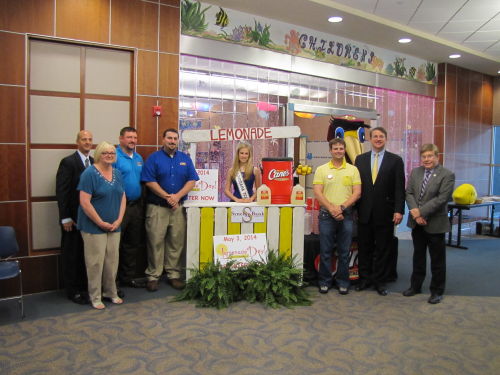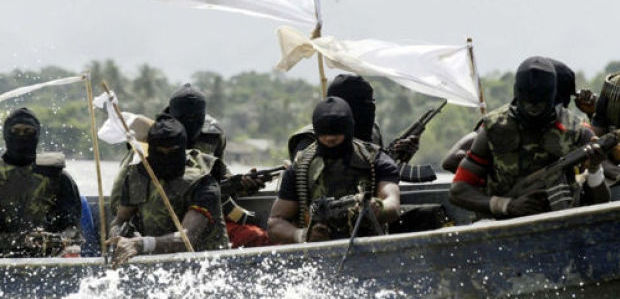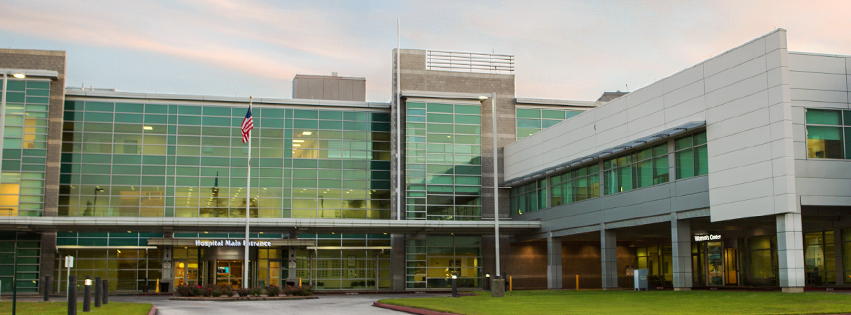CRIME BLOTTER: Reported offenses in the Tri-parish area
April 8, 2014
Houma Courthouse site for Lemonade Day fun
April 8, 2014While stashed away in a Nigerian swamp, the American hostage Capt. Wren Thomas III ate one pack of instant noodles every other day while his captors smoked crack and brandished loaded firearms. This went on for 18 days.
Thomas, who was kidnapped in late October off the Edison Chouest Offshore supply vessel the C-Retriever along with the ship’s chief engineer, shared his story with gCaptain, a popular maritime and offshore industry website.
“They treated us like animals,” Thomas, an Illinois native, told gCaptain for a story published April 4. “It’s about as close as a person could get to being a POW. Some of them were particularly cruel to us. The stifling air was filled with smoke from crack and pot the entire time. … They fought with each other the entire time, they would chamber rounds on each other and they would beat each other.”
Thomas had received no special training for precautions related to Nigerian territory or pirates, he told the website.
The U.S.-flagged C-Retriever was attacked off the southern coast of Nigeria in the Gulf of Guinea on Oct. 23.
The Niger Delta is among the most oil-rich locations in the world and is understood to be vulnerable to piracy, attacks on vessels and kidnappings. Attacks on U.S. vessels are not widespread, but they do happen: Three Edison Chouest employees were kidnapped in November 2011, and all were released.
“A number of crew members were injured and kidnapped in past attacks,” in Nigeria, reads a report by the International Maritime Bureau Piracy Reporting Centre. “Generally all waters in Nigeria remain risky.”
For roughly two months after his rescue, secured for a ransom, Thomas received no offer of aid from Cut Off-based Edison Chouest, he told gCaptain. In that stretch, before receiving medication, he contemplated suicide in gory detail – such as offing himself while driving or thinking about which of his guns he should use.
“No one ever offered me an opportunity to visit a doctor or receive any counseling or psychiatric help, let alone to pay for such treatment or meds,” Thomas said. In January, ECO offered to pay for medical expenses provided Thomas turn over his records to the company, he added.
At the time he was interviewed, Thomas had still not spoken to Gary Chouest, the company’s owner.
Attempts to reach Edison Chouest spokesman Lonnie Thibodeaux were unsuccessful.
Nigeria has the largest economy in Africa and the 26th largest in the world, according to its revised Gross Domestic Product estimate, The Globe and Mail reported this weekend.
Still, there is vast economic disparity in Africa’s heaviest-populated country, as Nigeria ranks 121st in the world in per-capita income – about $3,000 per person – and more than 60 percent of its population lives in severe poverty, according to the Financial Times.
In 2012, Nigeria outpaced all OPEC nations but Saudi Arabia and Emirates with $93 billion in net oil export revenue, according to the U.S. Energy Information Administration.
Rob Almeida, chief marketer for gCaptain and Thomas’ interviewer, concluded that companies doing business in the Nigerian market should understand the dangers facing west African mariners.
“Companies profiting from the rich Nigerian oil market have an obligation to protect those working for them and this account should serve as a call to action for mariners, owners and field operators alike to heed the lessons learned and take corrective action,” Almeida wrote.
The full story is online at gcaptain.com.
Pirates are armed and masked in this Associated Press file photograph. Capt. Wren Thomas III, an Illinois native kidnapped while working for Cut Off-based Edison Chouest Offshore in Nigerian waters, told his story to the online maritime industry website gCaptain.











